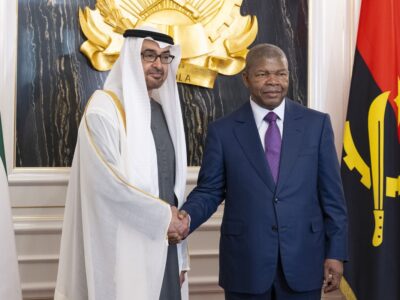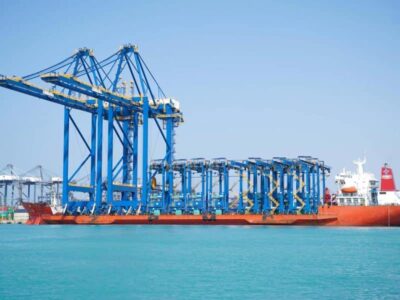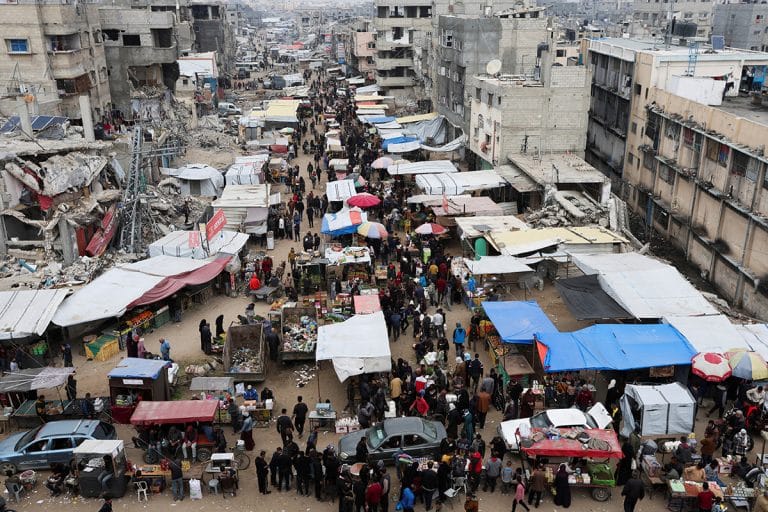World leaders and international organisations welcomed a comprehensive ceasefire agreement between Israel and Hamas on Wednesday, expressing cautious optimism while highlighting the urgent need for humanitarian aid and lasting peace in the region.
The complex phased accord outlines a six-week initial ceasefire with the gradual withdrawal of Israeli forces from the Gaza Strip. The deal, which mediators say will take effect on Sunday, includes provisions for hostage releases in exchange for Palestinian prisoners and promises a significant surge in humanitarian aid to the embattled enclave after 15 months of conflict that has claimed over 46,000 Palestinian lives.
Despite the breakthrough announcement, Palestinian medical authorities reported that Israeli airstrikes continued on Wednesday evening, with at least 32 people killed in strikes on Gaza City and northern Gaza. Mediators are working to halt hostilities before the official start of the truce on Sunday.
The agreement’s first phase includes the release of 33 Israeli hostages, including all women, children, and men over 50, with American citizens Keith Siegel and Sagui Dekel-Chen among those to be freed.
Middle East reactions
Qatar, which served as a key mediator in the negotiations, emphasised the critical nature of the coming days. Prime Minister Sheikh Mohammed bin Abdulrahman Al Thani, speaking at a news conference in Doha, confirmed the Sunday implementation date while urging calm in the interim period.
Qatar’s Emir Sheikh Tamim bin Hamad Al Thani voiced hope that the agreement would “contribute to ending the aggression, destruction and killing in the strip and the occupied Palestinian territories, and to start a new phase in which this just cause will not be marginalised.”
The Saudi Foreign Ministry offered strong support while pushing for a broader resolution, stating their hope for “the complete withdrawal of Israeli forces from the strip and all Palestinian and Arab lands.” The ministry “affirms the importance of building on this deal to resolve the basis of the conflict.”
United Arab Emirates Foreign Minister Sheikh Abdullah bin Zayed stressed “the importance that both Israel and Hamas adhere to the commitments made to end the suffering of the Palestinian prisoners and Israeli hostages,” while emphasizing the urgency of unhindered humanitarian aid delivery.
Egyptian President Abdel Fattah al-Sisi welcomed the agreement and stressed the importance of swift humanitarian aid delivery to Gaza, where most of the pre-war population of 2.3 million has been displaced.
International response
US President Joe Biden, announcing the breakthrough at the White House, outlined a broader vision: “Fighting in Gaza will stop, and soon the hostages return home to their families.” He emphasised the potential for “a credible, credible pathway to a state of their own” for Palestinians and “a future of normalisation, integration of Israel and all its Arab neighbours, including Saudi Arabia.”
US President-elect Donald Trump, who takes office Monday, posted on Truth Social that his National Security team, through Special Envoy Steve Witkoff, would “continue to work closely with Israel and our Allies to make sure Gaza NEVER again becomes a terrorist safe haven.”
European Commission President Ursula von der Leyen welcomed the agreement, stating it “brings hope to an entire region, where people have endured immense suffering for far too long. Both parties must fully implement this agreement, as a stepping stone toward lasting stability in the region and a diplomatic resolution of the conflict.”
British Prime Minister Keir Starmer pointed to humanitarian priorities, stating the ceasefire “must allow for a huge surge in humanitarian aid, which is so desperately needed to end the suffering in Gaza.” He called for focus on “how we secure a permanently better future for the Israeli and Palestinian people – grounded in a two-state solution.”
South Africa’s government, while welcoming the agreement, called for implementation of “a just and lasting peace that ensures the human rights of both Palestinians and Israelis are protected and promoted.”
Australian Prime Minister Anthony Albanese termed the deal “a constructive step to peace and stability” while maintaining an “unequivocal” condemnation of Hamas’s October 7 attacks and asserting that “there must be no role for Hamas in the future governance of Gaza.”
Humanitarian organisations
UN Secretary-General Antonio Guterres pledged support for implementation, stating, “The United Nations stands ready to support the implementation of this deal and scale up the delivery of sustained humanitarian relief to the countless Palestinians who continue to suffer.”
International Committee of the Red Cross President Mirjana Spoljaric cautioned that while welcome, the agreement “is not the end,” adding, “Civilian lives must be protected and their needs prioritised. The coming days are critical and we are counting on the parties to hold to their commitments.”
World Food Program Executive Director Cindy McCain emphasised the urgent need for action, stating, “A ceasefire is the start — not the end. We have food lined up at the borders to Gaza — and need to be able to bring it in at scale.”







